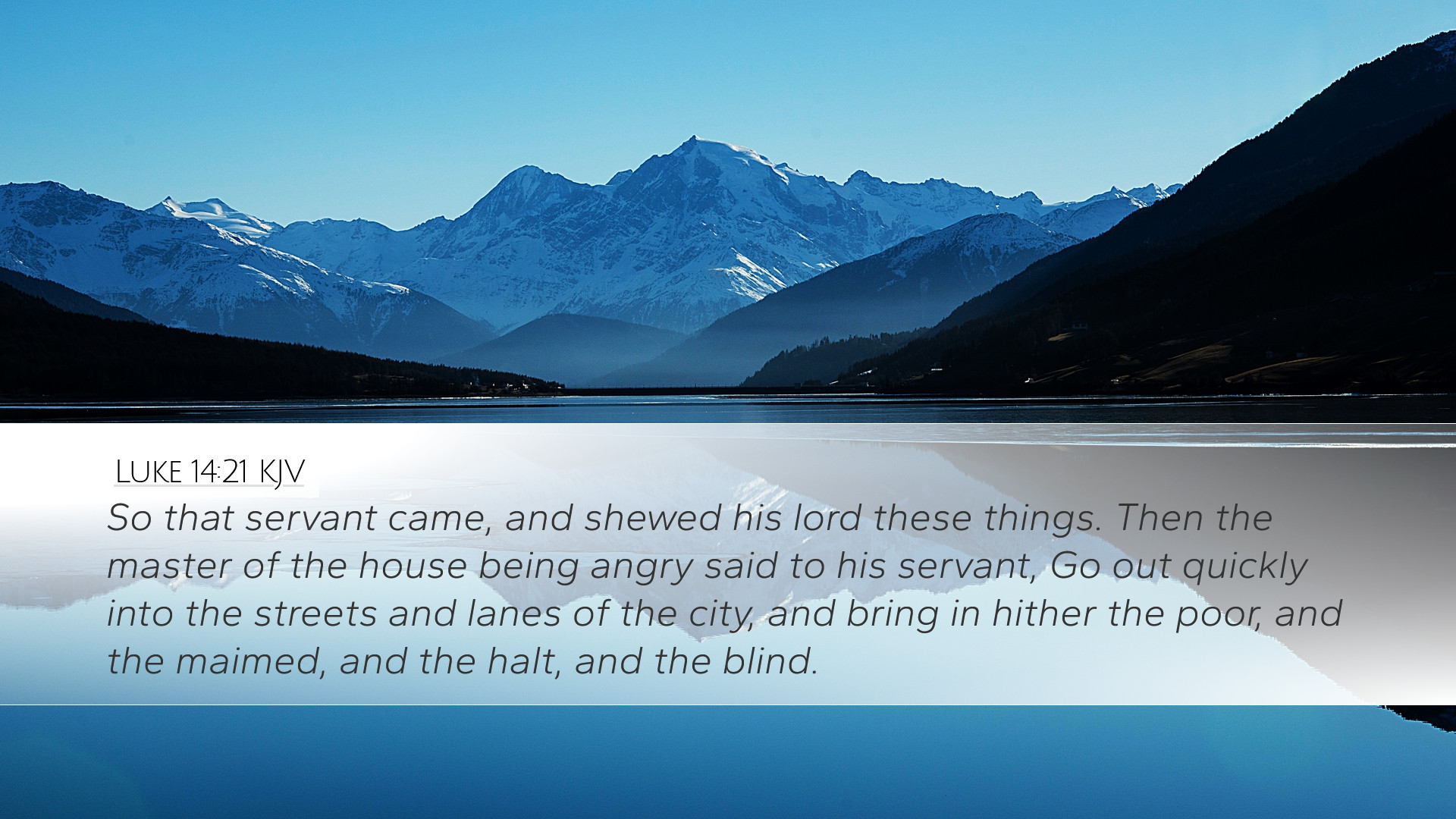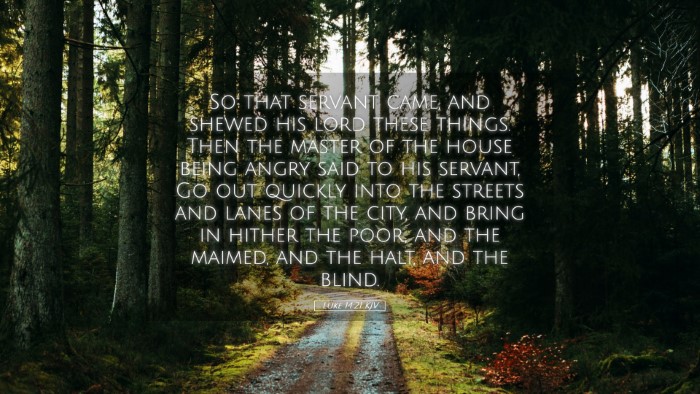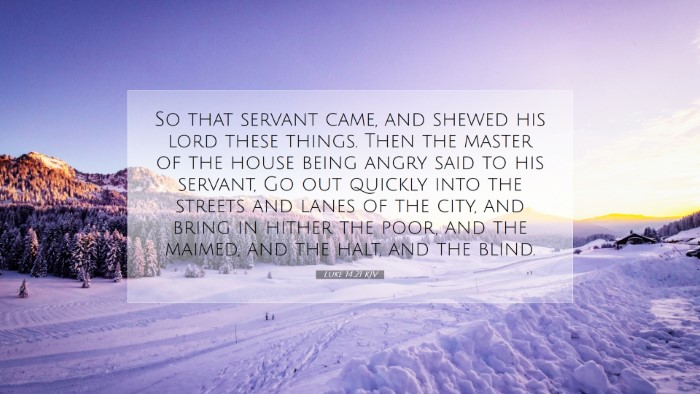Commentary on Luke 14:21
Luke 14:21 states: "So the servant came and reported these things to his master. Then the master of the house, being angry, said to his servant, ‘Go out quickly into the streets and lanes of the city, and bring in here the poor and the maimed and the lame and the blind.’”
Contextual Analysis
This verse occurs within a parable told by Jesus, often referred to as the Parable of the Great Supper. The narrative illustrates the invitation to God's kingdom and the responses of those invited. It highlights the rejection faced by the master of the house and calls attention to the expanded invitation extended to those marginalized in society.
The Master's Anger
The master's anger is significant. It reflects God's just response to humanity's rejection of His invitation. As Matthew Henry comments, "It is a serious matter to slight the invitations of God; it kindles His anger." This suggests the gravity of ignoring divine callings and the serious repercussions that follow.
The Servant's Role
The servant represents the messengers of God, tasked with communicating His messages to humanity. As Albert Barnes notes, "The servant is to proclaim the great feast of salvation and secure attendees from all strata of society." The servant's role emphasizes the urgency and responsibility in fulfilling the Great Commission to reach the lost.
Inclusion of the Marginalized
The instruction to bring in the poor, the maimed, the lame, and the blind signifies the inclusive nature of God's kingdom. Adam Clarke comments on this aspect stating, "The invitation is extended to those least likely to be invited; thus, it embodies the grace of God toward those whom society often overlooks." This serves as a reminder that the invitation to salvation is not bound by social status.
Application for Today: This calls pastors and theologians to embrace a ministry that seeks to reach out to marginalized groups within society. The church is called to reflect this open-armed nature of God's love.
The Nature of the Invitation
The invitation itself is a testimony to God’s grace—a free offer extended to all humanity. As Matthew Henry articulates, "The Gospel feast is provided without money and without price, inviting all who will partake." This underscores the availability of salvation regardless of one’s past or present condition.
Encouragement for the Church
Those who serve in the ministry are encouraged by this passage to actively seek and bring in those who may feel unworthy or unfit to participate in God’s kingdom.
Barnes points out that the church should embody an atmosphere of welcoming and acceptance.
This is essential for fostering a healthy community of believers that reflects Christ’s love.
Christ’s Example of Outreach
Jesus Himself modeled this inclusivity by associating with outcasts, sinners, and the downtrodden during His ministry on earth. His actions validate the importance of reaching out to those who are often sidelined by society.
Theological Implications
Theologically, this passage affirms the doctrine of grace—that the Kingdom of God encompasses all who accept the invitation regardless of their social standing, past sins, or physical condition.
Adam Clarke stresses this point, noting that the grace extended is a core truth of our faith.
Conclusion
In summary, Luke 14:21 serves as a powerful reminder of God’s good news for all, particularly those marginalized by society. The reflections of Henry, Barnes, and Clarke underscore the urgency of the master’s call, the role of the servant, and the inclusive nature of God’s invitation.
For pastors and theologians, this passage is a clarion call to embody the love of Christ in reaching out to all, emphasizing an inclusive ministry that reflects the heart of God.


